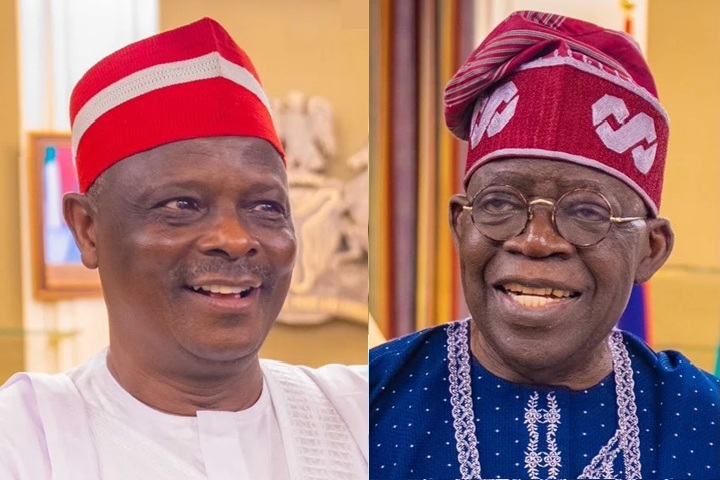News
Justice Department ends engagement with American Bar Association

Deputy Attorney General Todd Blanche sent a memo on Wednesday, April 9, 2025, to the Department of Justice workforce.
In it, Blanche directed that the DOJ cease official engagement with the American Bar Association.
The memo said that while the ABA has previously taken positions on issues that don’t align with DOJ positions, the department has traditionally “chosen to engage in an exchange of ideas with ABA officials and members.”
This the memo claimed it did by, among other things, participating in ABA events.
But, the memo said, the ABA recently filed suit against the DOJ, even as “the Department continues to expend taxpayer dollars on ABA events.”
It uses DOJ personnel’s participation “to attract attendance.”
“The Department of Justice will no longer use taxpayer funds to pay for any travel to or engagement with ABA events.
Additionally, Department employees may not, when acting in their official capacities, speak at, attend, or otherwise participate in events hosted by the ABA. …
Department personnel may not participate in ABA-sponsored events on official time,” the two-page memo noted.
The memo added that in limited circumstances, DOJ personnel may engage with the ABA if appropriate approvals from senior officials are granted.
The American Bar Association (ABA) and the Department of Justice (DOJ) are both key players in the legal landscape of the United States.
But they serve different functions and are not directly linked in terms of governance or authority.
However, they do interact and share some common goals, such as promoting justice and improving the legal system.
Breakdown of their relationship:
1. Roles and Functions:
The American Bar Association (ABA) is a professional association of lawyers and legal professionals in the United States.
It sets ethical standards, provides accreditation for law schools, and offers resources for legal professionals.
It also plays a role in advocating for changes in the law and public policy, promoting justice, and improving legal education.
The ABA also publishes a variety of legal resources, including the ABA Journal and standards for practice.
The Department of Justice (DOJ), on the other hand, is a federal executive branch agency that is responsible for:
- enforcing federal laws,
- representing the United States in legal matters, and,
- ensuring fair and impartial administration of justice.
The DOJ oversees a number of divisions, including the Federal Bureau of Investigation (FBI), the U.S. Marshals, the Bureau of Prisons, and the U.S. Attorney’s Offices across the country.
The DOJ is headed by the U.S. Attorney General and focuses on:
- prosecuting criminal cases,
- enforcing civil rights laws, and,
- handling a variety of legal matters for the federal government.
2. Interaction and Collaboration:
While the ABA and DOJ have distinct functions, there are areas where they intersect:
Policy Advocacy: The ABA frequently engages in advocacy efforts that can influence the DOJ’s policies.
For instance, the ABA might issue recommendations on issues such as criminal justice reform, legal ethics, and civil rights, which the DOJ might consider in its work.
In some cases, DOJ officials may seek input from the ABA or collaborate on policy reforms.
Training and Education:
The ABA offers a wide range of professional development programs for legal professionals. Some of these programs can include DOJ officials as speakers or participants.
Similarly, the DOJ sometimes works with the ABA to organize events, seminars, or conferences to educate lawyers on issues related to the law.
Legal Standards and Ethics:
The ABA has a prominent role in developing ethical standards for the legal profession, including the ABA Model Rules of Professional Conduct.
While these rules don’t bind the DOJ, they influence how federal prosecutors and other DOJ personnel conduct themselves in legal proceedings.
The ABA’s emphasis on ethics, professionalism, and the rule of law is something that the DOJ often aligns with in its work.
Public Comments on Legal Proposals: The DOJ sometimes publishes proposed rules or guidelines related to legal practice and criminal justice.
The ABA, as a prominent legal organization, may submit comments or recommendations on these proposals.
The DOJ may take these into account when finalizing rules and regulations.
3. Distinct Functions:
Despite these interactions, the ABA and DOJ serve different functions in the legal system:
The ABA is not a governmental entity and does not have the power to enforce laws or prosecute cases.
It is a voluntary membership organization for attorneys.
The DOJ is part of the executive branch of the U.S. government.
It has the authority to enforce laws, represent the government in legal matters, and prosecute criminal offenses at the federal level.
In summary, the ABA and DOJ have a relationship based on shared goals like improving the legal system, protecting justice, and promoting legal ethics.
But they are separate entities with distinct roles.
The ABA works as a professional organization for legal professionals, while the DOJ is a government.

American Bar Association
For Diaspora Digital Media Updates click on Whatsapp, or Telegram. For eyewitness accounts/ reports/ articles, write to: citizenreports@diasporadigitalmedia.com. Follow us on X (Fomerly Twitter) or Facebook











